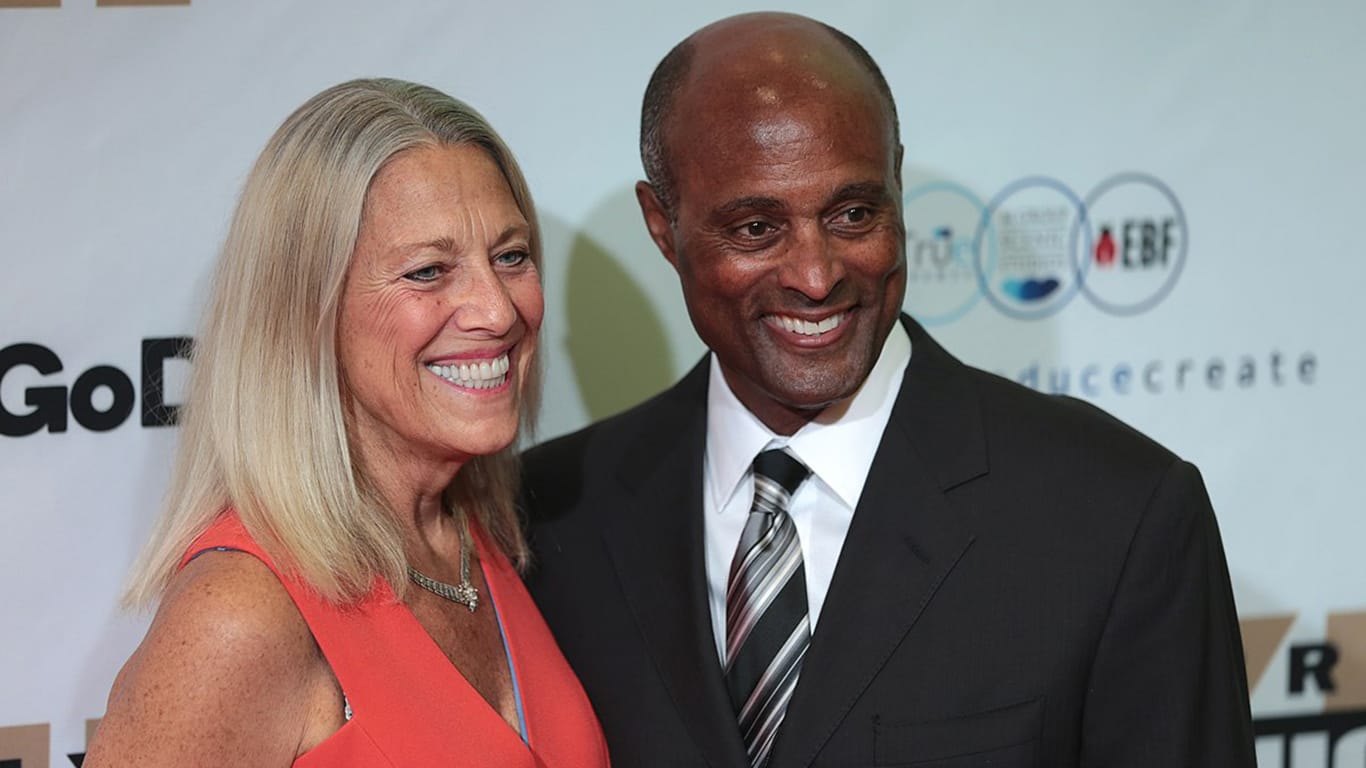Ray Anderson announced Monday that he has resigned as Arizona State University’s vice president for university athletics and athletic director, effective immediately.
Anderson, 69, said it simply is the right time for the move. He will remain at ASU as a professor of practice and senior advisor to help expand the well-respected sports law and business program in the Sandra Day O’Connor College of Law.
LEARN MORE: ASU will base its new medical school in Downtown Phoenix
“It has been a privilege to serve as ASU’s athletic director for nearly a decade,” he said. “We have entered an unprecedented era where the number and magnitude of changes in the college sports landscape are astounding. As I approach 70, these are not matters that my leadership would be able to corral during my tenure. Continuity of leadership will be needed, and I am choosing to step aside to let the university find that leader.”
Jim Rund, ASU senior vice president for Educational Outreach and Student Services, will serve as interim athletic director. Rund served as the interim athletic director in 2013 following the departure of Steve Patterson to the University of Texas.
The next athletic director will help navigate ASU’s upcoming move into the Big 12 conference and other landscape-shifting issues including name, image and likeness (NIL) licensing; the transfer portal; and recent Title IX challenges.
Anderson was named athletic director in January 2014. He quickly made his mark by focusing on academic success; Olympic sports, along with football and basketball; fundraising; and the need to expand and refresh ASU’s athletic facilities.
Anderson led Sun Devil Athletics through important changes including reaching one of the largest naming-rights deals in college sports history for Sun Devil Stadium to become Mountain America Stadium. He also was instrumental in the university’s decision to soon leave the Pac-12 conference and enter the Big 12 conference.
Anderson hired numerous national coaches of the year, Pac-12 coaches of the year and national championship winners, and he led ASU to a top-20 finish in the Learfield Directors’ Cup. He was a finalist for the Sports Business Journal’s Athletic Director of the Year in 2019 and was named by Forbes as one of the 25 Most Influential Minorities in Sports in 2016 for helping “position the Sun Devils as one of the most innovative brands in college sports.”
“I want to sincerely thank the many ASU student-athletes as well as our dedicated coaches and staff for the pleasure of leading them as their athletic director,” Anderson said. “They have all been wonderful partners and teammates.”
ASU President Michael Crow said, “By prioritizing student success, raising unprecedented levels of resources and evolving the Sun Devil brand, Ray Anderson has been one of the most impactful and longest-serving athletic directors in the history of Arizona State. We respect his decision, and we appreciate his service to the university.”
Expanding varsity sports
Anderson helped ASU expand to 26 varsity sports. In 2016, Sun Devil Athletics reinstated the men’s tennis program at ASU — made possible through a $1 million gift from Anderson and his wife, Buffie.
In 2014, Anderson announced the addition of the men’s ice hockey program, which was made possible through a record-setting $32 million donation, at the time the largest in Sun Devil Athletics history. The gift also provided mechanisms to fund the addition of both women’s lacrosse and women’s triathlon, which were announced in the fall of 2015.
Anderson led an athletics facilities renaissance that included:
- The final phase of the $307 million reinvention of Mountain America Stadium.
- The design and construction of a new $134 million multipurpose arena (Mullett Arena) that opened in October 2022 to house hockey and volleyball.
- A new beach volleyball facility.
- The Novus Innovation Corridor, with 330 acres of ASU-owned land leased long term to developers, with Sun Devil Athletics then receiving annual assessment payments.
- The baseball program’s celebrated move into Phoenix Municipal Stadium and capital improvements including an indoor batting facility and pitching lab.
- The men’s and women’s golf programs moving into their new home and state-of-the-art facility, The Thunderbird, at Papago Golf Course.
- ASU hockey becoming a member of the prestigious National Collegiate Hockey Conference in 2024. The conference produced five of the last six men’s Division I national champions.
A stable of strong programs
ASU will enter the Big 12 as a leader on several fronts, as its 26 sports, 650-plus student-athletes and nearly 150 Academic All-Americans all will be at the top of Big 12 charts. ASU also will enter the Big 12 as a member of the AAU, a prestigious collection of the top research universities. ASU will host the Men’s Final Four in 2024, then host the Women’s Final Four in 2026 in Phoenix as a Big 12 member while also leading the initiative to add both beach volleyball and lacrosse to the Big 12 championship calendar.
Though the football team struggled through an injury-plagued season, nine ASU teams were ranked in the national top 25 including hockey, volleyball, men’s golf, women’s golf, wrestling, men’s swimming, women’s swimming, soccer and triathlon.
Anderson tapped into U.S. national teams when selecting coaches, including hiring:
- USA Swimming Coach Bob Bowman to lead the men’s and women’s swimming program. The men won the Pac-12 title for the first time in spring 2023 and posted its best NCAA Championship finish (second place).
- Zeke Jones, USA Wrestling’s national freestyle coach, to take over the ASU wrestling program, leading to five Pac-12 wrestling titles (2017, 2018, 2020, 2021 and 2022) and a fourth-place NCAA trophy in 2021.
- Cliff English, USA Triathlon’s elite national team coach, joined ASU to lead the first Power Five women’s triathlon program, which captured six straight Women’s Collegiate Triathlon National Championships from 2016–19 and 2021–22 — and just won its seventh national championship in 2023.
Anderson also hired Bobby Hurley, one of the most decorated college basketball players in history, to coach men’s basketball. He took ASU to a No. 3 ranking in December 2017, its highest since the early 1960s, as well as numerous trips to the NCAA men’s basketball tournament. And Willie Bloomquist, a Sun Devil Athletics Hall of Famer, former Pac-12 Player of the Year and 14-year Major League Baseball player, joined ASU to revitalize the baseball program. Bloomquist is one of eight ASU alumni now coaching varsity sports at the university.
Prioritizing academics
Dedication to the classroom was a hallmark of Anderson’s tenure. In 2023, ASU recorded the highest Academic Progress Rate in the Pac-12 for the second year in a row, beating Stanford and Cal. The mark also tied the all-time ASU high.
Sun Devil Athletics in December 2021 also reached an all-time high Graduation Success Rate, with a record 10 programs reaching 100%. In each of Anderson’s years at the helm, Sun Devil Athletics surpassed its previous all-time best GSR.
In his new role with the Sandra Day O’Connor College of Law, Anderson will utilize his lifetime of sports-related business, legal and academic experiences, as well as his Stanford and Harvard Law School degrees.
A Los Angeles native, Anderson earned a Bachelor of Arts in political science from Stanford in 1976 and a Juris Doctorate from Harvard Law School in 1979. He was an all-league high school quarterback and shortstop, and he was a three-year football letterman and two-year baseball letterman at Stanford.
Anderson co-founded the sports law practice at Heller, Ehrman, a prominent San Francisco firm, in 1980, and entered the sports agency business in 1984 when he opened the West Coast office for Sports Advisors Group. In 1987, he launched his own agency, AR Sports, specializing in the representation of NFL coaches and players and later adding Major League Baseball players.
“Buffie and I want to give our heartfelt thanks to President Crow and the Arizona Board of Regents for giving me the opportunity to serve as a leader primarily focused on the athletics side of this New American University,” Anderson said. “Now, I look forward to continuing to serve ASU with my focus on the academic side.”




